#peer zhu
Explore tagged Tumblr posts
Note
hi red!! i'm doing an analysis of sun wukong's (and journey to the west in general's) impact on modern culture for my world mythology final, and for some reason i'm having a hard time finding sources. is there anything you can recommend?
The fact that Journey to the West has contributed an enormous number of tropes to modern media is very clear when the media in question is examined, but I don't know of a specific secondary source that's already done that analysis for you. However, this IS a very good excuse for you to plow through a metric buttload of shonen manga, since the lineage is basically Sun Wukong -> Son Goku -> like a solid third of all shonen action heroes written in the last forty years.
Dragon Ball kicks things off:
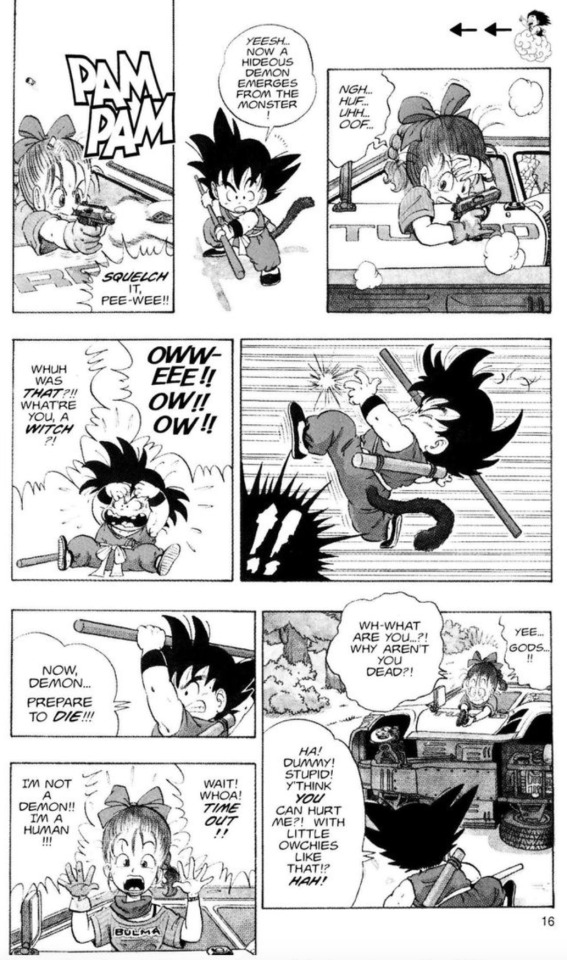
Started in 1984 and almost unquestionably the most influential manga ever made. Its first arc features the weird super-strong monkey-kid Son Goku - which is just the japanese pronunciation of the characters of Sun Wukong's name - meeting up with a wacky crew of thinly-veiled expys of the Journey to the West crew, with teen inventor Bulma filling the role of Tripitaka, Oolong the pig-man filling Zhu Bajie's role and Yamcha the desert-based bandit as Sha Wujing.
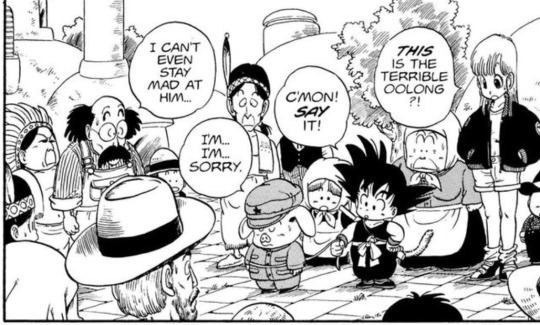
Hijinks ensue, and while the story drifts pretty far from Journey to the West's original plot, it actually stays pretty solidly referential in weirdly unexpected ways. Several the villains of the week are JttW references, and even the later appearance of three more Saiyans lines up with the surprise reveal of three more Wukong-like mystical apes in the original story.
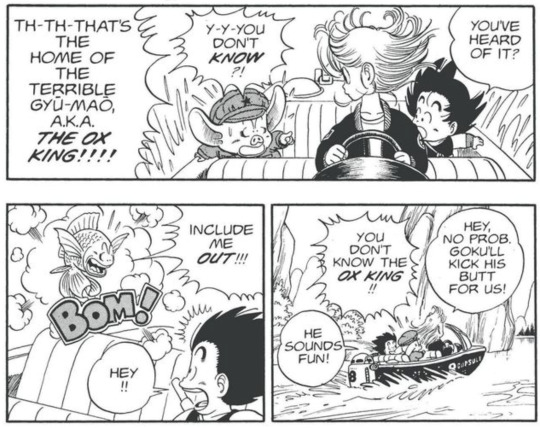
The connection between Dragon Ball and JttW is very unsubtle and a frequent reference in the chapter covers and supplemental art.
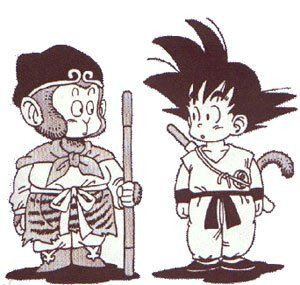
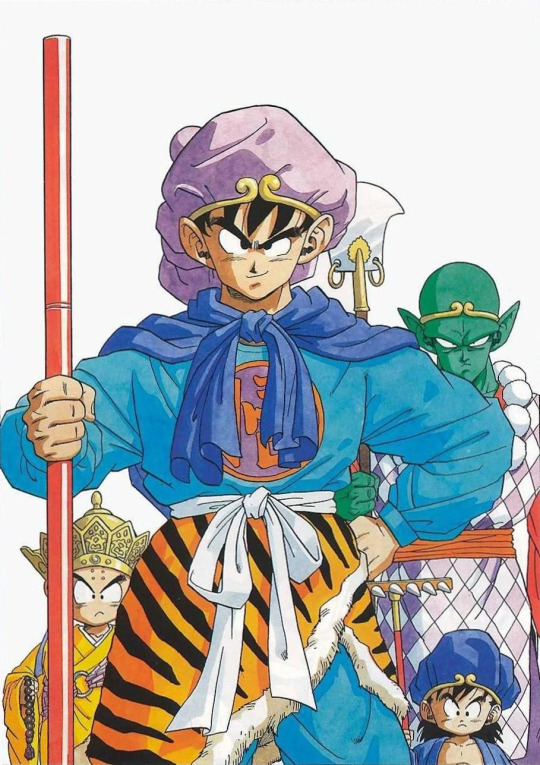
Not every subsequent JttW reference is the result of Dragon Ball popularizing it or anything, since it was already enormously popular, but I think it's pretty hard to extricate Dragon Ball's influence on anime and manga from the original influence of Journey to the West itself.
One way that a distinction can be drawn is in the differences in characterization between Goku and Sun Wukong himself. A lot of the next generation of shonen protagonists were kind of Goku-alikes - pure-hearted dumbasses who only care for the three Fs: Food, Fighting and Friendship.
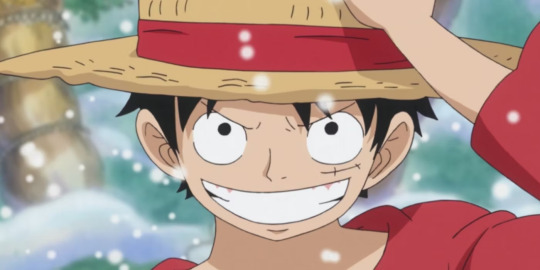
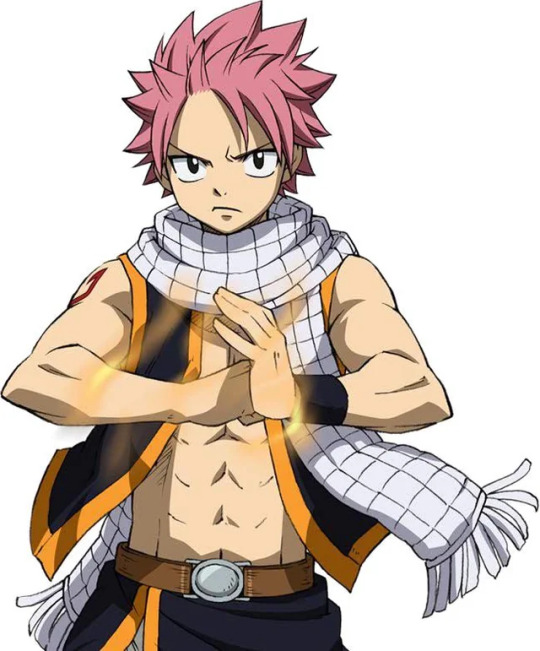
But the original characterization of Sun Wukong is not really all that similar. He's a trickster, sure, but he's far from a young, friendship-motivated goober. He's profoundly intelligent, pretty much the most well-educated entity on the planet, and routinely brings up that he's centuries older than most of his peers. The Goku-alikes from the later decades of shonen anime are tellingly far-removed from that original characterization. So you get characters based on Goku's cheerful idiocy, but it's just a small subset of the broader influence of Journey to the West on the space of literature.
In general, Journey to the West frequently shows up in very small, bite-sized tropes in other stories. It's less "this is wholly based on Journey to the West" and more "oh, I know where they maybe got this idea/aesthetic/power/weapon/villain of the week from." There are way too many to list, but some of the ones that tend to jump out at me are-
Sneaky characters with monkey motifs:
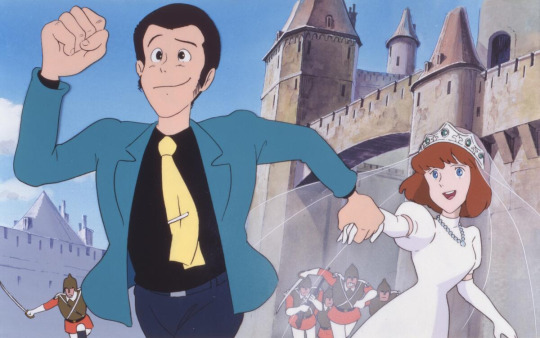
Tricksy, highly mobile characters who fight with a staff:
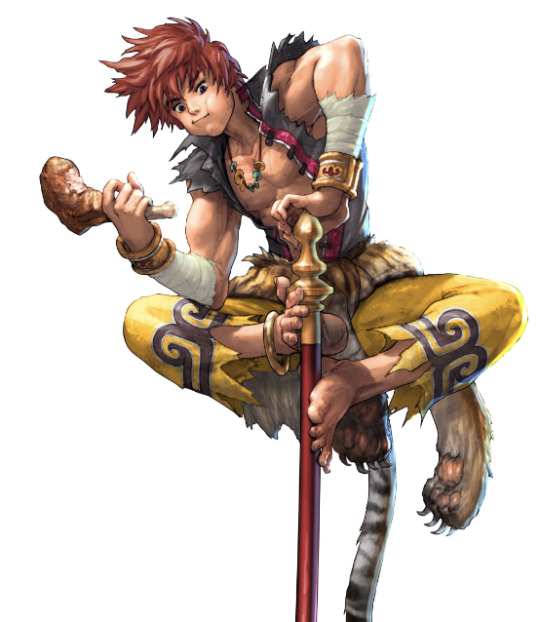
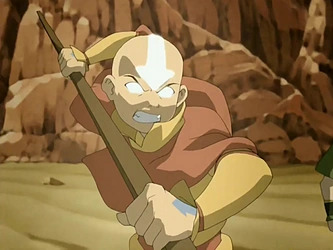
Characters afflicted with a magical restraint artifact that allows a much weaker character to stop them from misbehaving:
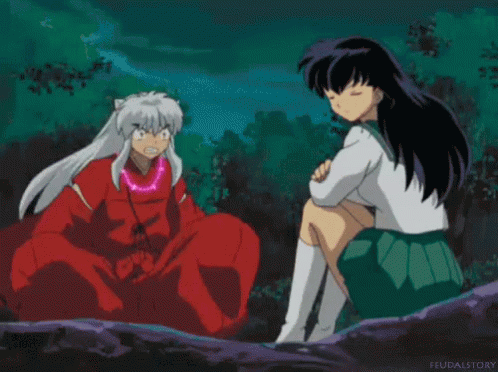
Specific esoteric weapons, eg. magical fans, rakes, gourds, namedropping The Sword of Seven Stars, etc.
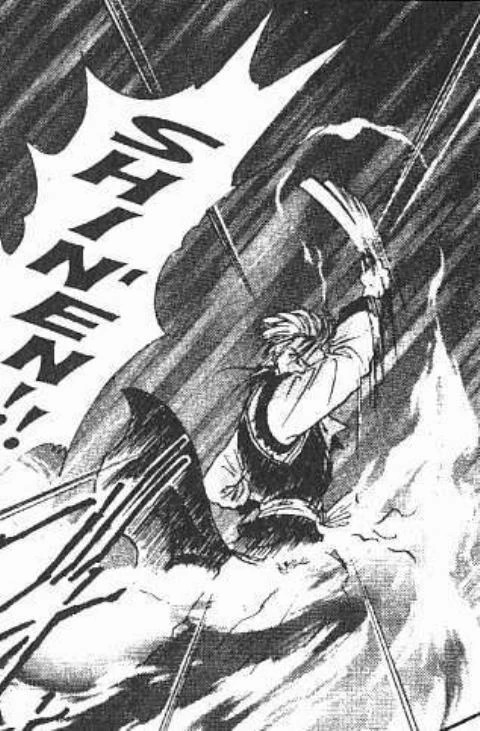
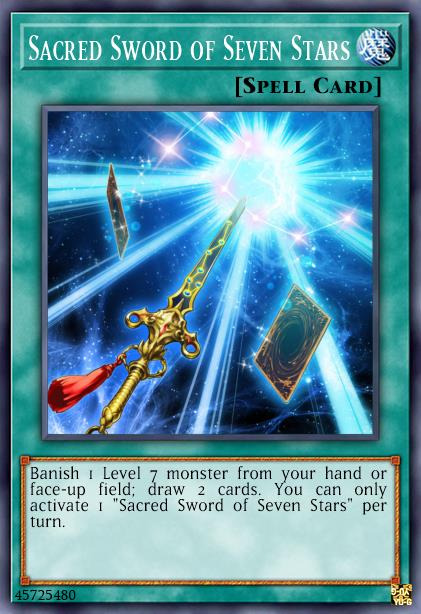
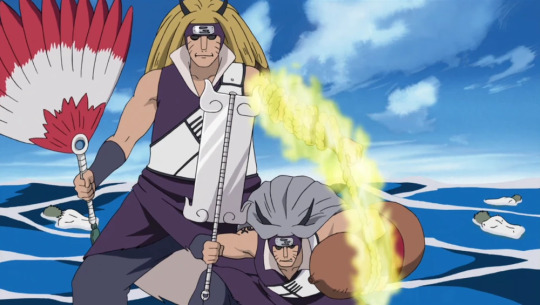
Villains with prominent ox or pig design motifs:
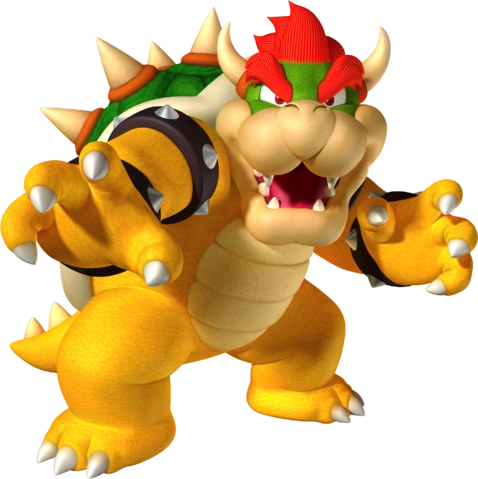
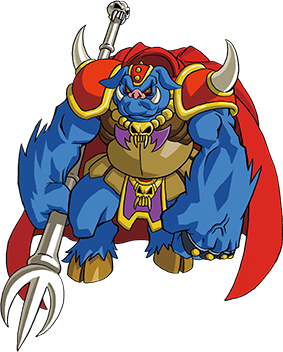
Characters whose primary combat strat is just making Shitloads Of Disposable Copies Of Themselves:
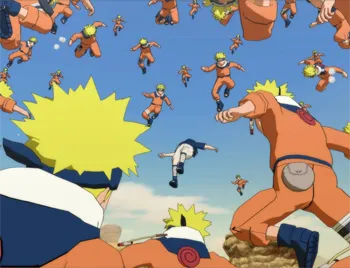
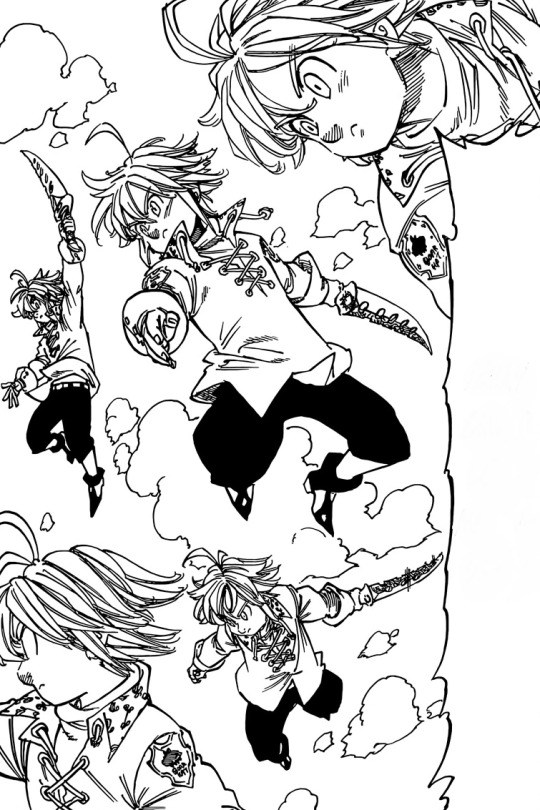
Honestly it just keeps going like this. It's kinda everywhere. Finding the JttW in things is my favorite conspiracy theory rabbit hole because it's 100% harmless and more often than not completely correct.
684 notes
·
View notes
Text
Foreign Words
Reader, a young adult, is tired of their monotonous, stressful and depressive life. One day, they absurdly appears in the world of the famous Chinese play called "Journey to the West", but, surprise, they don't know Chinese!
Characters:
Reader.

Aka "little one" or "foreign".
They are a modern, ordinary human who accidentally appears in the ancient world of the Chinese play called "Journey to the West."
A human without magic, but that don't stop them. They are a boundless workaholic, probably managing money even in the middle of an ambush. When they're not trying to work on something (or everything), they can be found playing their beloved guitar, which they carries around like it's they best friend.
As an insomniac musician, Reader possesses the surprising (and worrying) ability to survive on an amount of sleep that would make any normal human collapse. While others are sleeping peacefully, they are awake, making up songs about their misfortunes (as a way of coping) and singing them. They are likely to solve problems faster, although sometimes their ideas are meaningless when sleep deprivation takes its toll. They also have a short-term memory most of the time.
"Who needs sleep when you can put your problems to music?"
They really misses sleeping in a normal bed. Please, someone have mercy on them.
Sun Wukong.

Sun Wukong is small, but his power knows no bounds. Impulsive, he always acts first and asks questions later (if he asks anything at all). He doesn't have much patience for following orders, and if someone tells him what to do, he'll almost certainly do the opposite just for the fun of it. A rebel at heart, he's never been a fan of authority, especially if it comes from someone bigger or more important than him (which is almost everyone, given his size). Wukong doesn't have time to think before he acts. Plan? Nah! Better to jump headfirst into danger and see what happens. He's cunning like few others, always finding the quickest way out, or at least the most entertaining one.
However, despite his wild nature, Wukong knows how to get out of any mess he gets himself into (which happens more often than he'd like to admit). And when you earn his respect, he's loyal to the end. He defends his friends with an intensity that shows that, even though he has a hard time admitting it, he has a big heart. He may be mischievous and a bit chaotic, but he's always there when you really need him… Although sometimes you wonder if he does it for you or because he's just bored.
Tang Sanzang.

Tang Sanzang is the kind of person who firmly believes that peace and understanding can solve almost any problem… Even if he’s surrounded by hungry demons who want to eat him. Wise in many things, he always has profound and instructive advice to offer, though sometimes his innocence leads him to underestimate how dangerous situations are (such as when he insists on dialoguing with monsters who would clearly rather devour him than listen to his profound words).
His compassion is so great that he feels bad even when he steps on an ant, making him a pacifist at heart. While his peers prefer the “hit first, ask questions later” approach, Sanzang always advocates dialogue and non-violence, though sometimes that tests the patience of his more impulsive protectors. Despite his apparent fragility, he has an inner strength that drives him forward, convinced that kindness can conquer even the most terrible evil. He'll probably ask you to put the staff away and try to talk him through it, though… Even if the monster looks like he wants to use it as an appetizer.
A pacifist by nature, he'd rather sit down and have tea with a demon than fight, which sometimes makes his companions wonder if he's a little overly optimistic… Or if he just doesn't realize how dangerous the situation is.
Zhu Bajie.

Zhu Bajie is the kind of fellow who is always looking for two things: food and a nap. A top-notch glutton, he seems to have a bottomless stomach, and if there's food nearby, it's sure to be on his plate… Or in his mouth. His personal motto is something along the lines of "work as little as possible and eat as much as possible." In fact, if he can avoid a fight and resolve the situation with a feast instead of a battle, he'll do so without hesitation.
Besides being a slacker, Bajie is a born comedian, always cracking jokes (sometimes too inappropriate) even at the worst of times, making him the comic relief of the group, though not always intentionally. Despite his good humor, he has one very clear weak spot: women. An incorrigible womanizer, Bajie always has his head (and eyes) set on any lady who crosses his path, which usually gets him into more trouble than he can handle. Although he sometimes gives the impression that he doesn't take anything seriously, deep down he's a loyal friend who cares deeply… As long as you don't ask him to make a stale joke about Sun Wukong.
Sha Wujing

Sha Wujing is the rock of the group, the kind of person who always remains calm, even when chaos is unleashed around him (and traveling with Wukong and Bajie, that happens quite often). With his cool demeanor and calm voice, he's the one who manages to bring some sanity to the craziest of arguments, though he rarely butts in directly. He prefers to observe in silence and speak only when he has something important to say, making him a comforting presence for his companions at times.
He's incredibly loyal, the first to offer to shoulder the group's burdens, literally and metaphorically. If there's something heavy to carry, a thankless task to accomplish, or simply someone who needs support, Wujing will be there without a complaint. His resilience has seen him overcome trials that would have broken others, but you'll never hear him brag about it. Humble to the core, he seeks no recognition or glory; he just wants to do his duty and protect his friends along the way.
Despite his serious and chilling appearance, Wujing has a warm heart and endless patience, making him an anchor for the group. In a team full of chaotic personalities, he's the one who remembers that it doesn't always take magic, humor, or impulsiveness to face challenges: sometimes, it just takes someone who won't give up and keeps going, one step at a time.
Bai Long Ma.

Bai Long Ma, once a dragon prince, lived a life of luxury and pride… Until one bad decision led to his banishment. Now, in his white horse form, he accompanies pilgrims with unwavering loyalty. Although he can speak, he rarely does, preferring to let his actions speak for him.
He is altruistic in nature, always willing to bear the burdens of the group without complaint. His presence is calm and pleasant, as if he carries with him a little bit of the majesty he once had as a dragon. Silent but noble, Bai Long Ma is the companion who is always there, strong and reliable, even when no one else notices.
PD: This character reference sheet may change. In any case, notice of any changes will be given.
#jttw#journey to the west#sun wukong#my artwork#foreign words#tang sanzang#zhy bajie#sha wujing#bai longma#jttw x reader#journey to the west x reader
156 notes
·
View notes
Text
Sure we can rag on Bolin for not realising he joined the Earth Kingdom equivalent of the Nazi party and call him an idiot for it (deserved) but honestly I can't really fault him for it?
Like the ostrich effect is a thing and we are watching it in full effect here. We've seen that Bolin is a character that deals very poorly with conflict. Like it's super obvious he'd avoid standing up to Kuvira as much as he could.
One of Bolin's biggest hurdles as a character is that he is looking for a purpose, the rest of team Avatar having 'found themselves'. So it's not out of character for him to join Kuvira.
I feel like he's also compensating for the loss of Korra, who was in recovery at the time by following Kuvira.
It's very obvious that Korra had a huge impact on Bolin's life, as she did with all of Team Avatar. But Bolin had definetly attached himself very strongly to her. He's been following Mako around his entire life, been a follower for most of his life. And then his first real friendship outside of family follows a similar pattern.
Korra is like the perfect character for Bolin to project his weird codependency thing onto. She's an effortless leader, very forceful, decisive and straightforward. Someone who he can easily listen to and carve out a path he can follow. And following the Avatar around allows him to do something worthwile and good. To actually help. With the added benefit that it gets him people's approval, something he so clearly desperately needs and craves.
Then Korra becomes so injured that she has to be placed in physical therapy for an indeterminate ampunt of time.
So Bolin projects that need and codependency on someone else. Kuvira. In his argument with Mako he states it clear as day: 'I mean, Kuvira is basically just like Korra. She might seem hard to deal with, but just because she's so passionate and believes in what she's doing.'
He gets to continue doing good and making people like him while under very clear orders he can follow.
I mean, this boy is traumatised. Clearly, Mako took the brunt of the horrors of their childhood, but it would be incredibly stupid to say that Bolin isn't fucked up as well. Clearly in a different way but fucked up nonetheless. I think this codependency thing is something both brothers benefitted from as kids but that's a conversation for another day.
And the events of the first three books are also traumatic?
Like he's just been part of a civil war/end of the world so excuse him for hoping to catch a break. I will once again refer you to the ostrich effect. Another war breaking out is probably like worst case scenario in his mind.
I feel like for him, if he opens his eyes to what Kuvira is doing is accepting that there is once again a 'big conflict' in his life. And that his loved ones are once again in danger. And worse, that he's contributed to it.
I can also see it all being a case of 'well ive waded neck deep into this swamp, now i gotta see this through'. Like he's sunk so much time and energy into this cause, it can't be all wrong, right?
Sure, ego is probably a big part of his behaviour. Everyone is telling him that Kuvira is bad and that automatically puts up the defences. Bit I can see how these warnings feel like a direct personal attack at Bolin himself. He was also incredibly isolated from most of his friends when serving Kuvira. Other than Zhu Li and Varrick, who aren't exactly peers.
So he's lonely on a train most of his time and when he does reuinte with his loved ones they start criticising his life choices . I can see him getting defensive and automatically resistant to critisism.
And Kuvira is also shown to be very good at emotuonal manipulation and threats and stuff. And Bolin, a chronic people pleaser whith a lot of trauma is, like, the perfect victim for those shenanigans. Bolin is canonically bad at reading situations that are detrimental to him (look at the entirety of his relationship with Eska)
You know, sure, he's an idiot for staying with her as long as he did. But it's not as black and white as a lot of people make it out to be?
#bolin is a much more complex character than most people give him credit#bro i made it that deep#it is so late rn and im rambling about the silly lavaboy#bolin#tlok bolin#kuvira#korra#avatar korra#mako#tlok mako#tlok#lok#the legend of korra#legend of korra#avatar the legend of korra#atlok#earth empire
164 notes
·
View notes
Text

Travel destination: China
If you Could See the Sun by Ann Liang
Alice had always felt invisible at her prestigious school until one day she actually turns invisible, her life can’t get any worse, then her family informs her they can no longer afford the tuition, Alice comes up with a plan to monetise her powers however what started out with a few innocent secrets escalates to actual crimes.
She Who Became the Sun by Shelley Parker-Chan
This story reimagines the rise to power of the Ming Dynasty.
Zhu a poor forgotten daughter in a famine stricken village fights to survive everyday, destined for nothing while her brother greatness, however with a turn of fate her father and brother are killed and she seizes her brother’s destiny as her own and takes on his infinity leaving her village behind to train as a monk.
The Scarlet Alchemist by Kylie Lee Baker
Set in an alternate history Tang Dynasty China where Empress Wu finds a answer to immortality.
Zilan is a bit different to her peers, not only is her father a foreigner she’s a alchemist who practises the illegal art of raising the dead, her only dream is becoming an imperial alchemist and providing for her family, however this is no easy feat.
The Awakening Storm by Jaimal Yogis and Vivian Truong
A middle grade graphic novel about a young girl who has just moved, her main concerns are fitting in and making friends however an old women gives her a strange egg on a field trip which turns out to be a dragon, which is more work than you think, from keeping it hidden to saving it from evildoers, Grace’s life has changed.
Cinder by Marissa Meyer
A retelling of Cinderella set in futuristic Beijing where a plague is ravaging the population, Cinder is a cyborg, gifted mechanic and has a mysterious past and is blamed for her stepsister illness, but when her life becomes intwnied with the prince, she finds herself in the middle of intergalactic struggle.
#booklr#if you could see the sun#ann liang#she who became the sun#shelley parker chan#the scarlet alchemist#kylie lee baker#the awakening storm#city of dragons#jaimal yogis#vivian truong#cinder#marrisa meyer#books#china#world reads#around the world#bookblr#world read challenge
26 notes
·
View notes
Text
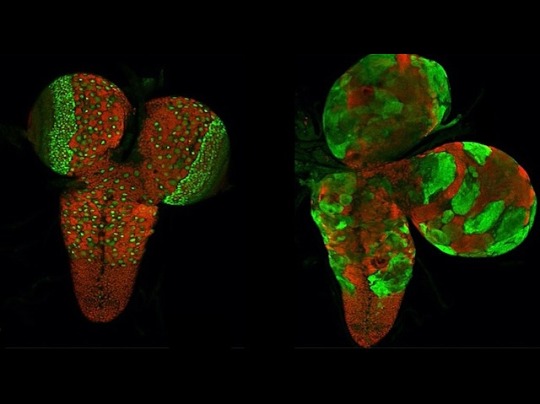
Nervous System Shapers
Identifying the genes that regulate the shaping and maintenance of the fruit fly central nervous system – insight for possible roles for homologous genes in mammals
Read the published research article here
Image from work by Haluk Lacin and Yuqing Zhu, and colleagues
Division of Biological and Biomedical Systems, University of Missouri-Kansas City, Kansas City and Department of Genetics, Washington University School of Medicine, St. Louis, MO, USA
Image originally published with a Creative Commons Attribution 4.0 International (CC BY-NC 4.0)
Published in bioRxiv, February 2024 (not peer reviewed)
You can also follow BPoD on Instagram, Twitter and Facebook
18 notes
·
View notes
Text
Zhu Xiang: Get over here
Shen Jiu: No, absolutely not-
Zhu Xiang: You need to have your check up. You're overdue because you keep scaring everyone else away.
Shen Jiu: Then they shouldn't have sent your peers if they were so easily frightened. Are all doctors cowards?
Zhu Xiang: Shen Jiu, you are going to sit down and let me check you over.
Shen Jiu: You didn't answer my question.
Zhu Xiang: It's not a question worth answering.
12 notes
·
View notes
Text
Zhu Yilong: A New Adventure is about to Begin
朱一龙:新的冒险即将开启
EN translation of Zhu Yilong's Harper's Bazaar June 2023 Cover Issue Feature Interview by wenella
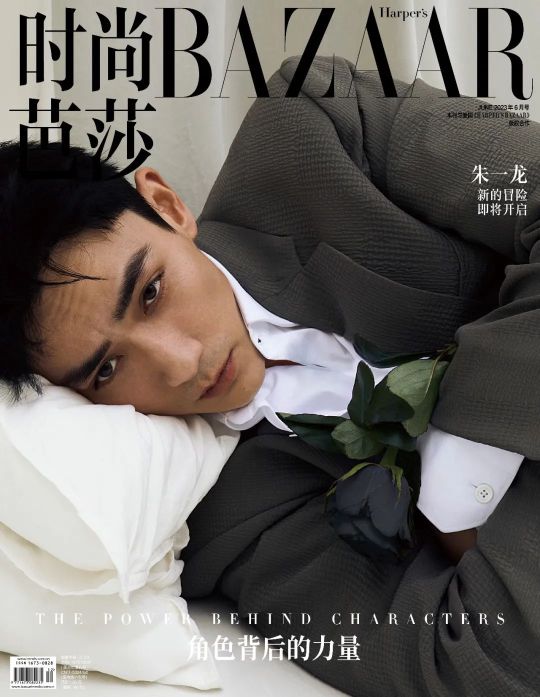
2023 is a brand new year for Zhu Yilong. It is also a year full of possibilities.
The 35-year-old has started promoting two films that he starred in, namely “Lost in the Stars,” a suspenseful crime film produced by Chen Sicheng, which will be released soon, and “Only the River Flows,” a collaboration with Wei Shujun, which was selected for the 76th Cannes Film Festival’s Un Certain Regard category.
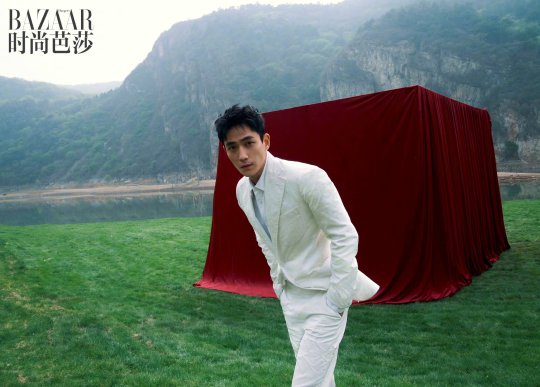
At the age of 35, Zhu Yilong is entering a phase that he has been anticipating.
He performs roles and writes new stories for them.
He is the person in the story, yet he is also the person who creates the story.
"I calculate time with my work."
Zhu Yilong calculates time with his works. Two movies a year. Ten more films later, he'll be 40 years old. This is how he counts.
Zhu Yilong was filming on his 35th birthday on April 16, 2023. He didn’t prepare for his birthday live stream but took the opportunity to chat with his fans on his birthday. He seemed a little nervous as he was doing the live stream alone. “Well, I don’t see anyone else while live streaming.”

Among the new generation of male actors, Zhu Yilong’s career trajectory is considered rather smooth; he learnt to play the piano in elementary school, enrolled in Beijing Film Academy to learn acting, and kickstarted his acting career in his junior year. After graduation, he garnered audience’s attention and support for his various drama roles. The web drama Guardian propelled him to popularity in 2018. In the show, he played three roles Shen Wei, Black Robe Envoy, and Ye Zun, and impressed viewers with his mature acting skills.
Yet, he also seems a little different from his peers. He seems rather mature for his age. Perhaps it is due to his shy, introverted personality, or the way he looks at people with his soft, glistening gaze in films, conveying sentiments that can only be spoken through his eyes. He is rather arty too and has performed Liang Bo’s “Boy,” Lo Ta-yu’s “Dream Chasers,” and Hedgehog’s “Cloud Bound Train” on stage. He doesn’t appear on variety shows and rarely does live streams. All these make him seem a little special.
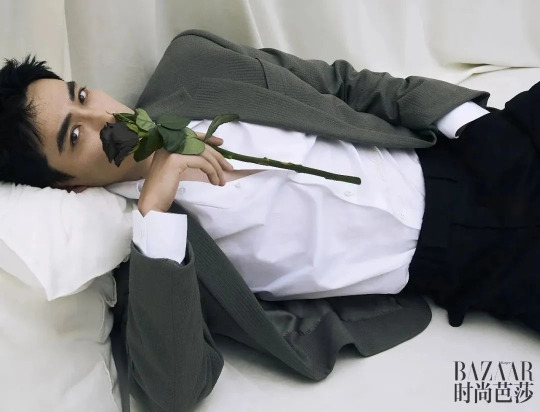
In one of Zhu Yilong’s rare live streams in 2022, he sang the theme song of “Lighting up the Stars.” The film is a tragicomedy that deals with a unique theme; he plays Mo Sanmei, a young man from Wuhan who works in the funeral industry. After an encounter with a little girl, Mo Sanmei finds a sense of responsibility and the meaning to his life. In order to play this role well, Zhu Yilong experienced life in a funeral parlour and sported a buzz cut. “I love the joys of reunion and sorrows of parting; I love the everyday life in this world.” He has sung the film’s theme song on several occasions. Each time, he played either the piano or the guitar, with his head lowered, while articulating the lyrics in his deep voice clearly. Beneath his gentle demeanour, we see occasional flashes of Mo Sanmei’s defiance and enthusiasm.
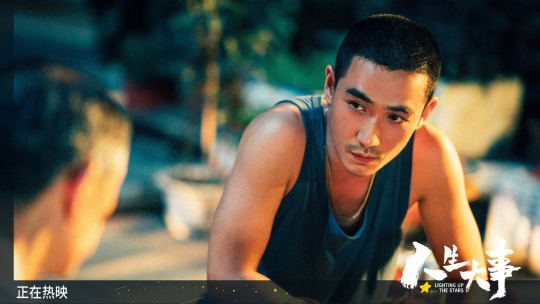
Zhu Yilong said that there are so many film genres that he would like to try. “I want to work with different directors and try different acting styles.” As such, he feels the lack of time acutely. He wants to keep making movies. The sceneries of his journeys, the waves of the sea, the winds of the world…… he hopes to depict everything that he sees, encounters, and feels, through the cinematic lens.

In Zhu Yilong’s opinion, there is no distinction between the status of a film actor and a TV actor. It has nothing to do with status. Rather, making movies requires the actor to immerse himself in a totally different circumstance. “You will experience something different from your life, you will need to leave your comfort zone and experience a circumstance that you are unlikely to encounter in your life.” As an actor, he enjoys this kind of life. He said that being an actor has taught him to be reflective. He used to read scripts and find certain situations unreasonable. However, if he encounters such issues now, he would reflect to see if he finds the situation unreasonable simply because he hasn’t experienced something similar, or if it is one that he doesn’t truly understand.
“In fact, most of the time, it is most likely due to the fact that we haven’t experienced such situations before. Real life can be more dramatic and hyperbolic than in scripts.”
“Hiding behind his role and helping the creator to complete the work"
In May 2023, the film Only the River Flows, directed by Wei Shujun and starring Zhu Yilong, was selected for the 76th Cannes Film Festival’s Un Certain Regard section.


Only the River Flows was shot on 16mm film, making it a brand new experience for Zhu Yilong. Zhu Yilong described Wei Shujun as an extremely talented young director and they would often discuss filmmaking.
"The overall creative direction of this film, the acting style, and the way the plot advances, differ greatly from my previous films. Unlike regular movies that utilize character's emotions to create plot twists, Only the River Flows shows how the whole story and atmosphere changed the character instead.”
Zhu Yilong’s upcoming film is a commercial suspense thriller “Lost in the Stars.” He adopted a completely different way of acting in this film. “There are many types of films and there is no one way of acting that is necessarily more ‘superior.’ Different genres require different acting styles.” He said, “I was initially hesitant to accept the role when I first read the script because the character is highly complex. He often vacillates between different states – this character isn’t linear and I wasn’t sure how the role would be presented eventually. However, audiences might find this aspect thrilling because there are plenty of plot twists.”
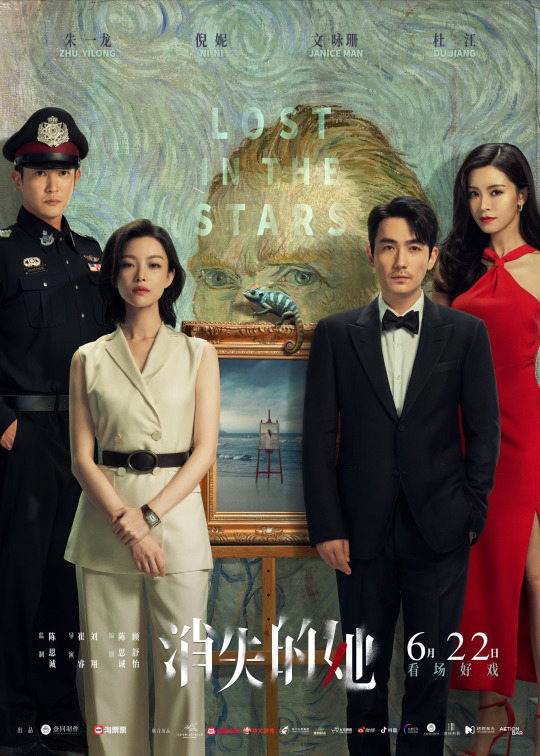
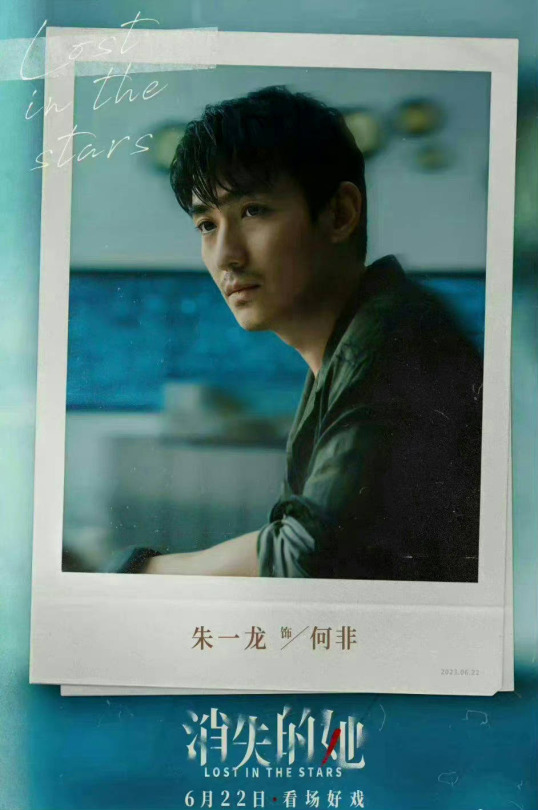
Zhu Yilong spoke with the film’s producer Chen Sicheng many times and in great detail about the film’s production and expected outcomes. Chen Sicheng told Zhu Yilong that he wanted to make an extreme genre film. Zhu Yilong agreed with the mode of presentation and decided to join the team.

“I realised something very interesting.” After making Lighting up the Stars and Lost in the Stars, Zhu Yilong noted, “Transforming into a character isn’t only about changing a look, gaining or losing weight for the role, or simply growing long hair or a moustache. Rather, it is related to one’s understanding of acting. The transformation needs to be thorough. If I use only one type of acting method to take on different genres, I am just merely repeating myself and not really challenging different genres.”
On the topic of self expression, Zhu Yilong admitted, “It is difficult for an actor to express his world views through his character or performance.” He feels that an actor is only a medium. A film is constituted by its director, lighting, art…… and many other creators; the actor is just one aspect of the entire creativity process. Therefore, he doesn’t seek to express himself through the lens. Rather, he hopes to help every creator and director to realize their work and to present their vision as holistically as possible – a film isn’t merely about what an actor has to say to the world.

Zhu Yilong, who wishes to remain hidden behind his role and avoids repeating himself, is striving to do his best in every step he takes. He shows us how an ordinary person can gain recognition through hard work, one step at a time.
"Allowing myself to be more relaxed"
When Zhu Yilong isn’t filming, his life is quite boring. He admitted that he is an introvert and said, “My lives in films are so exciting. I’m actually quite tired each time I wrap a film. So I just want to keep things simple and comfortable; I will be more than satisfied just to get enough rest.”
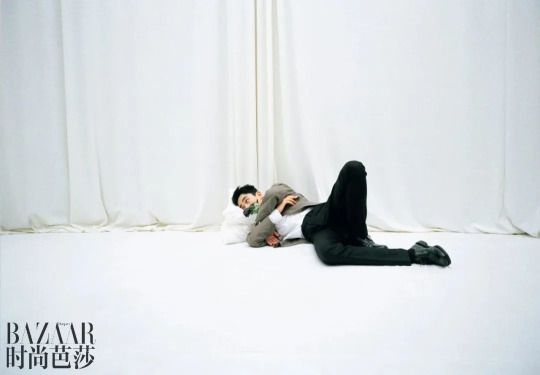
Zhu Yilong is 35 years old. He is considered to be at his prime, though not necessarily young anymore. However, his smile, eyes, and posture, still exude a youthful charm. On his birthday, he said that he didn't want to celebrate, but he would like to make a birthday wish. When we asked him what he would like to say to his 40-year-old self, he said, “I don’t want to talk to my 40-year old self. Time is passing so quickly. I don’t feel like 40 years old is a distant age. Time passes very quickly when one is busy.”

A few years ago, Zhu Yilong thought that getting less exposure and not going on variety shows could help to preserve an actor's mystique. But he thinks differently now. “Everyone has the right to choose how they want to live and everyone has the right to choose their acting style. There is no hard-and-fast rule regarding acting. If they feel comfortable or enjoy participating in variety shows as part of their job, why not?”
These changes happened over the past two years. Previously, Zhu Yilong would think, “I aspire to become this type of actor, I will work hard in this manner, I will go to this extent for my role…” However, he feels that it doesn’t really matter anymore. “As long as it isn’t something calculated or deliberate, I think it is fine,” he said with regards to what type of acting he preferred and the goals he hoped to achieve.
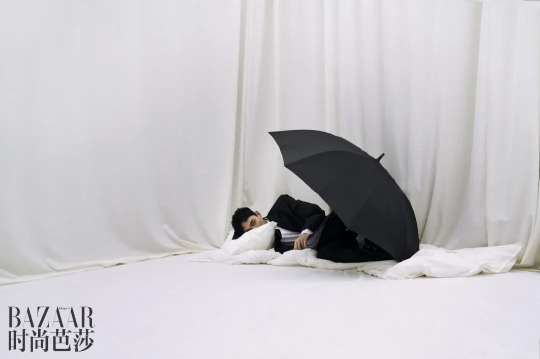
“I just want to let my acting be more natural, I want to be more relaxed. I don’t deem my roles as pathways to quick success nor weigh the advantages of each role I play. I don’t think about what I can get from a role.”
“I don’t want to seek approval or recognition for the characters I play or my acting style. I don’t think too much about this issue. I just hope that I am able to enjoy the process of creating my roles, of emptying and transforming myself into my character as much as possible.”

For him, every performance is a door.
The completion of a work is not the end, but the door that leads to his next adventure.
#zhu yilong#朱一龍#zhuyilong#朱一龙#cannes2023#cannes#lost in the stars#消失的她#lighting up the stars#only the river flows#wenella#河边的错误#人生大事
94 notes
·
View notes
Text
Championnats RD-
junior ice dance is so fun - so far they’re going much harder than seniors on the period costumes. a number of these teams were at Next Gen, so it was fun to see them live. i’m adopting Aurea Cincon-Debout and Earl Jesse Celestino- their Jacksons RD is adorable, and they’re currently in 2nd. Gauthier/Thieren made their debut. not sure if they’re coming off injury or if they had a conflict with Next Gen. their Jagger/Bowie RD went from Honkytonk Woman to Fame and Dancin in the Street, which musically felt all over the place
Senior RD was an entirely IAM event - Romain wore sunglasses the entire time but also was peering over them to watch the teams, so idk if they were style or jet lag or what 😅 Harris/Chan with an ABBA RD that felt like a very natural choice for them. Fabbri/Ayer really solid. this is the 2nd year where they skated well here but also felt like they got a bonus from the home judging panel. Pham/Spiridonov- a program that lets them dance - shows you how important packaging is that he always felt overshadowed by Lorraine and programs that didn’t do him any favors at WISA. these two are still learning each other and have things to work out, but the material brings out good qualities in them - like he has some natural dance ability
Fournier/Zhu are committing all the way to their performances - sometimes he feels like he’s focused on his expression more than on her. this RD doesn’t stand out from the many disco programs. but omg Hannah and Ye’s does - big time - it feels like they took a page from Lilah and Lewis’s playbook in that it’s engineered to bring the crowd to their feet at Worlds. there’s cheering and whistling from the crowd on the track itself, the way they play with tempo changes to build momentum to an organic climax - this is potentially the most exciting RD we’ve seen so far this season. there are sharp details in this already, they’re both projecting- i’m excited about this one
7 notes
·
View notes
Text
She Who Became The Sun
I want to thank @amhrancas for commissioning me to read a book I have been so so curious about, and I hope y'all will thank her too! She's also letting me, next month, talk about a movie I FUCKING LOVE.
nonspoilery: A plot-driven book that takes place over a long period of time in China during the time oof the Khans. There’s a lot to like in it, and i think a lot of people would really connect with this storyline, but there’s something slightly off about it that didn’t quite make it with me, that I pin down to a certain lack of character depth. It’s a pretty decent book overall, with some great description though, and the character thing is in no way jarring--it took me a bit to figure out what made the book not quite hit for me.
SPOILERS BELOW:
I really wanted to like this book, and I still want to like this book, and I don’t NOT like this book, but I was prepared to love it. I don’t. I wish I did.
And this isn’t me trying to satisfy the people I know love this book, or hedge about my feelings: I know how many of y’all loved GtN, and my response was essentially, “Hey, quick question, what the fuck is wrong with you?” (affectionate) so it’s not that I’m afraid to come out as not liking something well received by my peers. It’s just, I felt so close to really liking the book, and just could not get myself there.
We’ll come back to that, but it’s one of the less-relevant bits of the review, so we’ll move on from it for now. So this is a historical fiction novel: KINDA. I admit that I know nothing about larger Chinese history, I never studied it, so I actually was not even aware that this was about a real person except for my commissioner telling me so when asking me questions to consider for the book. Some of the back of the book comments are calling it a historical fantasy, and aside from, I guess, the ghosts, the only reason I can see for this is that this is not at all representing the historical person Zhu Yuanzhang (I didn’t let myself look him up until after I had finished the book) so I would, personally, actually call this an alt-history, but I understand tht has some baggage with it the author may not have wanted to engage in.
I was asked about the idea of narratively reworking a historic figure to be totally different from who they were. I have no problem with it! I feel like as long as we’re all HONEST about it--and I feel like this book is pretty honest about it, though, what choice does it have--it’s fun to sometimes have a historical blorbo and make them do what you want. I think that real people do not have symbolism and foreshadowing and motifs, and so, as a Lit major, I think it can somehow make people more REAL, by making them fictional.
Also, as a History major, I kind of do not like it, for reasons that have nothing to do with the ACT of it, and more with the idea that so many people do not ever venture beyond the fictional work and so have completely incorrect notions of historical figures, and they feel ways about these human beings based on the very much fictional avatars presented. This tends to lead to a thing I LOATHE, where we do bad history because we need these people we admire to have been ‘like us’ or to hold values we hold or feel like we could have been friends with them, ignoring the reality of their personality, their social and temporal position, the fullness of who they were as a person, etc. I see a lot of bad fucking history based on this idea, and that is not new, this has been going on for a million years, but I have never liked it. Fictional accounts can convince people of things that aren’t necessarily the factual kind of true.
That complicated feeling of mine goes on beyond this book, and, frankly, this takes it to such an extreme that I doubt very sincerely I’m going to see scholarship done about a great emperor of China being a woman secretly. So, I feel complex ways about it, but with a smart audience that realizes it’s fiction, I don’t have a problem with it, though in the same way I tend to prefer Not!Europes or Not!New Yorks, I tend to prefer, for example Not!Billy the Kids or what have you. But it didn’t affect my feelings about the book at all, this is a common thing in literature and the multitudes I contain today I will still contain tomorrow.
Let’s talk about our main characters.
Zhu. I think this is where the book didn’t lose me, but failed to engage me. I want to like Zhu so bad, but I just don’t, and I don’t mean I dislike her, I just mean I don’t…care much. I feel like I have no idea of the interiority of who she is other than trying to hide being a woman. I don’t get a grasp of her personality otherwise. I know she does what it takes to survive, I know she sees ghosts, and I know she becomes ruthless in a way that I found a bit shocking not in a “oh my god! Twist! Way but in a way where I felt like there wasn’t a clear enough path for people named Doc, who are me, from “I can kill a bad man” to “I can murder a child” or maybe there was, i don’t know, I just felt like there was a wall kept up between me and Zhu*. She murders a child, and Ma is all, “You said you wanted me for my kindness but you don’t care about it” and then Ma is at her side anyhow, so I guess it didn’t actually matter to Ma that much either, close of business, and I am just sitting there going, ‘Okay the book is over now, right?”
Ouyang. Probably my favorite character in the whole book, and yet, I mean I don’t like him in an “Ouyang is an innocent meow meow.” Ouyang is a bitter, hateful person who has intentionally forced himself not to feel joy or comfort or love because he made himself into a weapon and a weapon alone. Like Zhu, he took the steel he was given, but he bent it to his will. I love him as a character, I think his approach to everything is fascinating, and, inevitable, and I frankly find him much better written than Zhu. I was not at all surprised when he killed Esen. I saw it coming very early on, not in a ‘predictable trope’ way but in a ‘I hear the howl from far off and don’t get shocked when the wolves come in” way. He did it, and the way that was written was so great, and I was sitting there going, “You are going to blow up every good thing, the only good thing, that you have, out of a love for people you don’t even remember and a culture that is only yours in the way a shadow is you.” He looks straight at me and goes, “And what of it?” Extremely taken with him.
Revenge is a huge thing in this book, and the necessity of it, almost. Is there redemption in revenge, what does it mean to find redemption, and is there value in holding onto an old pain for so long? Ouyang waits til near the end of the book for his revenge, but does he feel satisfaction from it? He carries his need to kill Esen like a bag of bricks, but he never for one moment imagines that he can set it down. I think there’s something to be said for a lack of flexibility in that. What does revenge bring him? What did his revenge against Zhu bring him? He suffers so much at the end, when he kills Esen, in what is very likely my favorite scene from the whole book, the absolute perfect ending to their story, and even then he cannot imagine a different way. He takes this idea of revenge as his way of being man, his fucking fixation on manhood and being a son, and what he is and what he is not, and he lets it eat him alive, and it brings him NOTHING. At the end of the day, it brings him only suffering and pain, and instead of having one dead family, he has two.
Though I suppose it could be said that Esen suffers for his near-inability to be capable of revenge. Not that he’s a weak man, he isn’t, and not a cruel one either, though often a thoughtless one. (And maybe this is, after it all, why Ouyang can kill him. He was always kind to Ouyang in every way Esen could think of, but he never thought about Ouyang, from Ouyang’s view.) But he doesn’t have the sense of revenge that other people in his life do, he doesn’t have the instinct. Not even what i would call full on revenge, he can hardly make the people he cares about pay for the things they do.
Maybe the way to live is between them, I don’t know.
So, obviously, at the end I absolutely salivating over everything that is happening with Esen and Ouyang, but find myself very much left cold by whatever the hell Zhu is doing. This is a problem as a reader! This isn’t even me saying, “Oh nooooo Zhu turns ruthless and naughty” I actually think that’s a great middle point for a story, but for the end to be like, “So then Zhu murders a child, and is now king. The end.” I was sitting there going, “so what…am I supposed to take from this, exactly?” A good story has a moral, not always a good moral, and maybe moral isn’t even the right word, but stories teach us things, and with the B-track story of Esen and Ouyang I feel like I got that, but with Zhu’s story I came away utterly plussed about the whole thing. Diversity win! The warrior-king who ruthlessly grasps for power is a gender noncomforming woman! Ahaha I mean I’m oversimplifying obviously, but it feels in many ways unfinished to me.
I really did like the descriptions and vocabulary in the book, though, and I think this is part of what broke my heart about not loving it. PLEASE use words like palimpsest and internecine and facile. PLEASE describe things as being “like froth on a dead man’s mouth” and “ held on as if it were a slipping deck at sea” and “the particular combination of awe and pity one gets from seeing fragile pear blossoms in the rain” my god. WHAT. I was fucking SPOILED by the language of the piece. To a degree that was almost frustrating.
The experience of this book was the experience of an ex where it should have worked, where it should have been everything and more, and it wasn’t even BAD, it just did not reach what it should have. I feel an echoing ache that I could not really ever LOVE this book despite wanting to so badly. It feels frustrating, ina way that hating a book doesn’t. I do think people who are interested in this book should read it for themselves and make a judgment call, as I’m sure and know that there are plenty of people who enjoy this book exactly as it is. I’m not chomping at the bit to read the sequel but not opposed to it, either, and maybe in that shrug is the harshest condemnation I can realistically offer. It’s not a bad book. It’s even a pretty good book. But it does not give me passion for its main character.
*It might be that this book is so so fast-paced. It is slamming from year to year with military movements and the Mongol court and the Red Turbans and betrayals and successes and there are few breaths taken in between. Some people will love that, but I felt it robbed me of a bit of knowing the people I’m reading about.
19 notes
·
View notes
Text

What are Trendy Toys?
In recent years, alongside the craze for "everything can be blind boxed," trendy toys have gradually entered the public eye. Also known as art toys or designer toys, trendy toys integrate concepts from art, design, trends, painting, sculpture, and more. They are primarily targeted at adults. According to reports, the development of trendy toys in China has been rapid, with the market size growing from 6.3 billion yuan in 2015 to 20.7 billion yuan in 2019. Many trendy toy companies have started to venture into overseas markets, and some Chinese designs have gained popularity among international consumers, demonstrating strong innovation and cultural influence. Trendy toys are no longer a niche hobby for a few; they have risen to become a form of spiritual consumption and a cultural phenomenon.
In physical stores, many prominent locations in large shopping malls are occupied by trendy toy shops and vending machines, where people enthusiastically spend tens of yuan to buy a "small moment of happiness." Online, domestic trendy toy brands like Pop Mart have surpassed LEGO and Bandai for two consecutive years, ranking first in the toy category sales list on Tmall's "Double Eleven" shopping festival. Additionally, some museums have also experimented with launching cultural and creative products in blind box formats, traditional stationery companies are exploring this market, and many internet companies are entering this industry...
This is a consumer frenzy among young people and an attempt to bring art closer to daily life at affordable prices.
Trendy Toys: A New Business Format Linking Art and Commerce
"In fact, trendy toys are a form of art peripherals, bridging the gap between art and toys." The current consensus in the industry is that trendy toys in a narrow sense originated in late 20th-century Hong Kong and Japan, created by independent designers and artists, also known as art toys or designer toys. These works often feature a hint of street culture, rebellion, and anti-mainstream style, produced in limited quantities and thus relatively expensive, initially appealing to a small circle of enthusiasts.
By the early 21st century, the concept of trendy toys fused with local anime, film, and television industries in Europe, the United States, and Japan, giving rise to globally renowned trendy toy brands and characters such as KAWS and BE@RBRICK.
After entering mainland China, trendy toys diversified in form and shifted their focus from being purely art or designer toys to targeting a larger market—the art peripherals market. More and more companies related to toys have entered the industry chain, forming a preliminary ecosystem for trendy toys from design, production, and sales to the secondary market and large-scale offline exhibitions.
Among them, large-scale offline exhibitions have become a window for quickly observing the trendy toy industry. Designers seize the opportunity to communicate and exchange ideas with peers, discovering new trends and changes in the industry. "You will find that this circle is experiencing iteration and integration. People are playing with things that are increasingly similar. Those who used to only collect statues are now also starting to play with trendy toys and figurines. Those who didn't play with statues before are now paying attention to them with the rise of trendy toys," says Zhu Jiaqi, Art Director of Kai Tian Studio, seeing this as a sign of the trendy toy industry gradually maturing.
2 notes
·
View notes
Text
The Xiang Chronicles: Book Four Chapter 1
Title: The Xiang Chronicles: Book Four
Author: Jay Grayson
Word Count: 118k
Genres: Fantasy, adventure, drama, LGBT+
Available on: my website
Synopsis: In order to save the world from the continuous subjugation and potential annihilation at the hands of Tiandi, hard lines must be drawn. The Great Spirits that were imprisoned ages ago must be unsealed and awakened, no matter the consequences.
The players are divided—those who stand blindly with Tiandi, such as Xiang Merra and her disciples versus those who want to tear the system down and give the power back to the people. Even a few of the most religious Lords change their minds when they learn the truth of the world—that Tiandi is no more than a dictator with no love in his heart.
It is up to the last, real Xiang and the ill-fated Chaaya to put everything they have into tearing God from his throne and creating new possibilities for the future.
Full chapter 1 under the cut
Chapter I:
It was strange how much they all looked the same but even with some identical features, one could still find small things that marked individuality. Gong liked to do so every time he and his brothers were together. He was the easiest to discern, he knew, since his beard was shorter than the others. But, Jun had less wrinkles and rounder eyes. Hwang had a couple of beauty marks that were unique to him as well as very swollen joints in his fingers that made them look knobby.
Then there was Zhu.
He definitely looked the most like Tiandi but he had a different nose—slightly hooked downward and narrower than Tiandi. His brows as well were just a smidge fuller and with a few wayward hairs.
“Gong.”
The use of his name made him return to his senses. He had been half paying attention to the meeting, especially since they all liked to go on and on about minor issues before getting to the meat anyway. Most of their meetings would wind up taking double the time because the beginning was often just a sharing of stories or catching up rather than discussing the topic at hand.
It was why Gong felt so comfortable zoning out.
He blinked a few times and straightened his back. “Yes?”
Jun quirked an eyebrow while Hwang rubbed his forehead and Zhu glared. It appeared as though he had inadvertently missed something important.
“We were asking what you felt we should do with an unruly Xiang. Had this been, say, Xiang Don, what do you think we would do?" Jun frowned as he spoke.
Gong realized, all at once, that they had been talking about Pangu but without saying his name. He mentally cursed and looked down at his hands. “Well, we certainly did not have an especially close connection with Don. We took him into our care later and did not establish the same rapport as we have with the past few Xiang. I imagine we would have behaved very differently.”
“Those are a lot of words to contribute nothing,” Zhu muttered.
Hwang came to his defense, sort of, “You know he feels connected to Pangu. Despite me being the boy’s father, he sees him as a son.”
“I see all the Xiang I have mentored as my children,” Gong countered but none looked at him as though they believed him.
Even the few spirits that gathered around the clearing, peering in past the trees and brush, regarded him skeptically. Gong even partly expected Tiandi to appear in the sky and shoot him a look from up high. Though, technically, it was unnecessary for Tiandi to be present at all.
So long as they were all around each other, it was quite the same as having him there.
“I have only been with a handful of Xiang but even I know that is not true,” Jun countered. “The last Xiang you really cared for was Soren but was that not just pity guiding you?”
Gong flinched at the drop of that name.
Soren had been the Xiang before last, a sweet but foolhardy boy from Agni who lost two of his disciples in an ambush by the Chaaya. The sudden and unexpected loss left him traumatized and both Gong and Jun had to return to him and fill in for his disciples just to motivate him enough to push forward.
In the end, Soren died after killing the Chaaya because of miasma poisoning.
He was nineteen when it happened.
“Enough of this back and forth,” Zhu, figuratively, put his foot down. “I would like a direct answer from you, Gong. What do you think we should do about Pangu?”
He nearly responded with “Why would my input even matter?” but he bit down on his tongue. It was clear, however, that Zhu or, rather, Tiandi had already decided on a plan and they were all due to follow it without question.
That was always the case.
From Gong’s memory, it had not even been something he was aware of when he first came to be blessed with the Tian aspect. Although, when he meditated on it, he noticed that he had been overwhelmed in the beginning. There had barely been any of him in control—it was almost all Tiandi.
It was not until a couple of centuries later that he began to acclimate.
His old life, back from when he was just a man, was something he thought about often and something he suspected his brothers did not entertain. Sometimes he would just stare at them and wonder if they remembered their lives from before at all.
If they missed those days.
If they ever regretted ascending.
Sometimes he did.
Gong was once called Blanc Gong Cuad and he lived in a small village with his family. He herded sheep and he was devoted to Tiandi. Every day, he left offerings on a shrine and, every night, he prayed for the basics—protection for his sheep, rain for the crops, and good health. In his spare time, he practiced meditation and some martial arts although, back then, he was admittedly quite bad at them.
Yet, his dedication paid off and Tiandi took note of him.
At the end of his life, he passed from the mortal realm into the spirit realm and he was met with Tiandi, Zhu, and Hwang. The rest, honestly, became fuzzy after that moment and the next prominent memory Gong had was looking at himself in the reflective surface of a pond.
So much of what made him Gong was gone and, in the place of those features, there was Tiandi. Every imperfection was made perfect by Him and, soon after he noticed that, he also noticed that he was not alone in his mind.
‘I look like Tiandi,’ he thought to himself.
Immediately, the reply came, ‘You are now Tiangong. This is you.’
It was jarring and, in hindsight, Gong was sure he gave over control of his new body to Tiandi more often than not because having to exist in that form was still too overwhelming. He became used to it, obviously, but he also learned how to shut Tiandi out.
There was nothing he did that demanded secrecy but Gong just wished for a little privacy now and then. Zhu had actually been the one to teach him the method when he noticed him struggling with Tiandi’s constant presence.
Zhu, out of all of them, was the most blended with Tiandi. Sometimes it was difficult to tell who was really at the forefront but, when he taught Gong how to get a little peace for himself, he surely did seem like just Zhu.
Though Gong had not seen that man in ages. Since the time of Xiang Kern, if he had to guess, and that was quite a while ago.
Now, it was as if three versions of Tiandi were staring Gong down, boring holes into him. He gulped and finally stumbled out an answer.
“Perhaps we should bring Pangu somewhere with just us and speak to him again?”
Zhu frowned, as expected, and Hwang gave a dry chuckle. “Like we did already? That went well, did it not, brother?”
“I do not think we made our stance clear,” Gong persisted.
“I felt the hints were quite heavy handed,” Jun replied.
Perhaps but they did not, definitively, tell Pangu what they wanted from him either. Just that they did not especially care for some of his disciples and that he was to be careful going forward. Plus, so much of their attention had been on Merra that they did not have the time to have a thorough talk.
Not that it would have changed much, Gong argued in his own mind. He knew how stubborn that boy was and he knew that he was going to continue doing what he felt was right no matter what. If they had told him to dump Kira—or else—he most certainly would not have done it.
Then they would have had this conversation much sooner.
“Still, we did not state our plans for him directly,” Gong said and then cleared his throat, “We just hoped and assumed that he would do as we wished.”
“He was a good boy,” Hwang retorted, “Why would we have expected anything else?”
“Exactly,” Zhu agreed, “He was well mannered and respectful. None of us could have expected…this.”
“Did I raise a different child than the rest of you?” Gong could not hold it in. Pangu was sweet, sure, and he wanted to please them but he always had his own ideas about things. He had lost count of the number of times the boy had followed up a lesson with “why?” Some rules of Tiandi he always regarded with a shrug and, had Gong been paying more attention, he could have easily seen the root of it. But to say his recent choices came as a complete surprise? He could not.
“What? Did you notice something we were all blind to?” Jun scoffed. “Please, enlighten us.”
“Nothing bad, not necessarily,” Gong defended, “Just…Pangu was always exceptionally curious. He questioned most of Tiandi’s rules and he wanted to know more about the cultures of other lands beyond what was required of him. He had very different impressions of…controversial…historical figures than we were used to. He always wanted to hear both sides of a story and he asked us more questions about what Shakti was like than we had ever heard from another Xiang.”
“So you mean to say we should have seen this coming?” Zhu arched an eyebrow.
“Not this, exactly…” Gong tried to swallow down the lump in his throat but it was impossible with all of their eyes on him. He even felt Tiandi’s eyes coming from within him.
“I suppose, in the future, we should avoid allowing children such curiosity and free thought,” Hwang mentioned and stroked down his beard, “Clearly, giving room for anything besides obedience is a recipe for disaster.”
Gong frowned. “Is this…truly…worse than the Xiang who married or had children? Or those who otherwise abandoned their task?”
“He denounced Tiandi in front of people!” Zhu snapped. “He proclaimed to know more than Him and encouraged others to do the same. How could you even possibly suggest he is the same as those who simply acted out of their selfish base desires?”
“They are equally heinous to me,” Hwang replied, “And I believe we should deal with Pangu in the same manner we handled those Xiang.”
It was chilling to hear it said so causally—especially since Hwang was, biologically, Pangu’s father. He held no love in his eyes as he flagrantly suggested ending his son’s life.
As the three of them mumbled and nodded, Gong felt a thousand miles away. He thought of taking Pangu into his arms when he was a babe and making him laugh so that he would stop crying. He thought of teaching him how to write and how to read older scripts. He thought of chasing him around the temple grounds when he escaped bath time.
How was he supposed to be alright with just killing him?
“Gong,” Zhu said his name like a command. When he made eye contact, the eldest continued, “Do you have any objections?”
His gaze jumped from one Prince to the next and they each glared at him, as if they expected him to delve into a speech about how they needed to operate with more grace rather than be so heavy handed. He wanted to but he also knew he was in a precarious position. He had felt it for a time but, since Pangu began rattling the cage, it had become even more apparent.
Gong was not on the same page as his brothers. He knew it. They knew it. And they were constantly looking for little things to pull them further apart. Little things they could grab onto and exacerbate. He felt it in every interaction, every look.
If he made one wrong move or said something they resented, he could be looking at the end of his existence.
It had happened once already, although it was before Gong’s time so he really only heard stories from Zhu and, briefly, Tiandi. The details were vague, as one could expect, and Gong only knew the name Badou and that he was the second Prince to be made, before Hwang.
Something had gone wrong with the Tian aspect in Badou—he did not take it well and he had to be let go which, incidentally, killed him. In his resting place, a temple was built to honor him and to keep his memory alive though no one, outside of them, knew about it.
The temple of Tian-Badou, the temple they raised Pangu in, was a constant reminder that the Princes were lucky they ascended with no problems.
Gong, however, had started to wonder about the story he was told, especially as he felt, more and more, pushed out of the group. When he saw them with Merra’s disciples—with Gongji in particular—he began to feel anxious. His name was already similar enough and he was the clear favorite.
What would stop them, really, from killing Gong and having Gongji assume his role? Would anyone even notice?
“Gong?” Jun said and waved his hand out. “Objections?”
“Oh.” He felt his throat tighten. “No.”
It seemed no one had expected him to agree to the plan and Zhu, in particular, looked surprised. “Oh…well then. I suppose we should prepare.”
Gong nodded, wordlessly, as his hands balled into fists in his robes. Of course he did not want Pangu to die but he also could not help him if he was killed first.
He would need to play along with the group until he was able to leave and be somewhere on his own. Somewhere he could summon an old friend and desperately plot.
2 notes
·
View notes
Text
Abstract The utilisation of virtual learning environment (VLE) in education at the college and university level has become prevalent in the recent years. VLEs are claimed to offer schools with a number of benefits like anytime, anywhere access, improved motivation, access to higher or novel learning, chances for autonomous erudition, better incorporation of information and communication technology (ICT) implements, not to forget increased parental engagement (Becta, 2004). However, while such facilities provide significant advantages to both learners and teachers, they also bring difficulties. One of the main problems is about the lack of discrimination by the students to the materials available for research in the Internet and so the solution can be provided through the setting up of a walled garden. This protects the learner of an institution from the outside users and allows the teacher to upload chosen materials which are available exclusively for their student. However, while this solves one problem, it creates the potential to limit students’ research capability and need for them to learn to be discerning in assessing the usefulness of learning materials. Key Words: Virtual Learning Environment (VLE), ICT, Electronic, Learning, Walled Garden, Web 2.0. Contents Abstract 2 Contents 2 1.0.Introduction 3 2.0.Basic Information about VLEs 4 E-Learning provides a number of unique features such as collaborative activities, peer commenting, and online assessment of coursework within a VLE. Common online course models include: 8 1)The content and support model – provides a separate tutorial support and standard course content; 8 2)The wrap around model – adopts the resource-based learning by combining the provision of classroom and online learning activities. Thus, giving more autonomy and accountability to the students; and 8 3)The integrated model – does not provide distinction between online tutorial support and course content (Mason, 1998). 8 Regardless of the type of online course model, a college or a university is using; there will always be some teaching and learning benefits, that can be gained by establishing a strong and reliable VLE (Nagi, 2011; Zhu and Bu, 2009; Fisher, Cox and Gray, 2008; Kroski, 2007; Nian-Shing and Yi-Hung, 2005). 8 3.0.Ways on How the Provision of “Walled Garden” could protect the Online Learners from Outside Forces and How It can impede the Students’ Learning 12 4.0.Conclusion and Recommendations 15 5.0.References 16 1.0. Introduction VLE is an electronic system that can make online interactions of various kinds available, taking place among learners and tutors, Read the full article
0 notes
Text
“Audre Lorde writes, “This hatred and our anger are very different. Hatred is the fury of those who do not share our goals, and its object is death and destruction. Anger is a grief of distortions between peers, and its object is change."
Be Not Afraid of Love (Mimi Zhu)
0 notes
Note
Prompt
OG Crossover
The difference between Zhu and Jane when it comes to NNN with Jaune is that when Jane teases him, it is on purpose. She knows how to get him all riled up.
Jaune once again look at the mirror. His eyes was raw and bloodshot with a minor hint of...unwellness within
Jaune: You almost lost the NNN challenge and prove to my male peers you are not a man of focus commitment sheer will but a animal enslaved by his base instinct. But you will win this challenge and be a man among man.
He nodded himself as he turned way from his bathroom mirror to get out of the room and opened the door to the bathroom...and freeze when his dark blue eyes landed on Jane who was wearing nothing showing off her perfect buxom hourglass frame to his bloodshot blue eyes.
Jane: Oh hello there, Jaune. Didn't think you was in the bathroom.
The beautiful and seductive rat thiren said in a not-so-innocent voice as she walked pass the blonde knight with a seductive sway to her wide hips.
Jaune: *begin to weep hot burning tears of blood*
#rwby#rwby smut#zenless zone zero#zenless zone zero smut#jane doe#zzz jane doe#jaune arc#original male stud au#original male stud au prompt#crossover au#crossover au prompt#anon prompt#anonymous knight#jane x jaune#jaune x jane#nnn#no nut november#teasing#seduction#poor jaune#zzz thiren
20 notes
·
View notes
Text

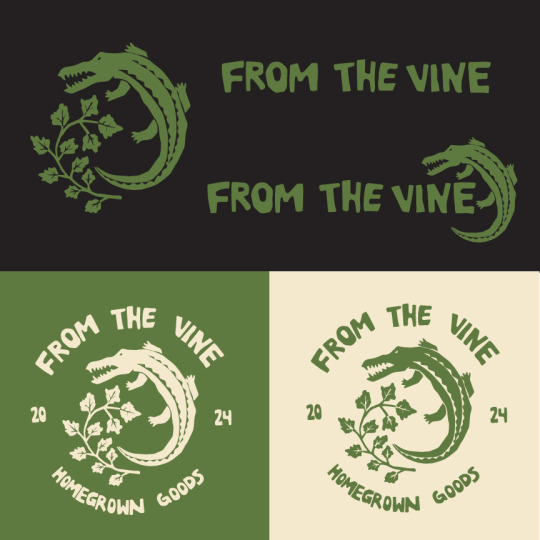
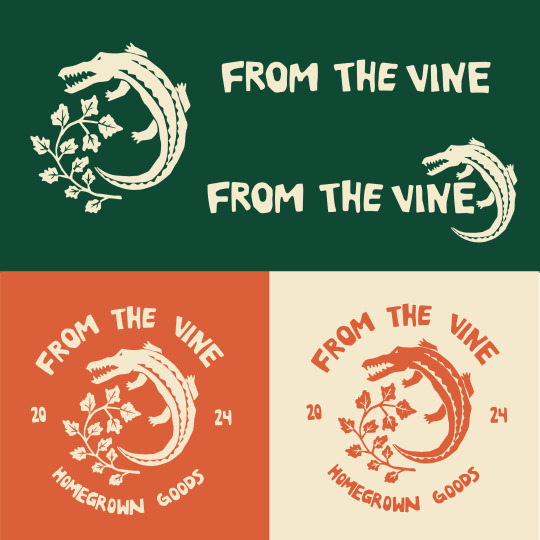
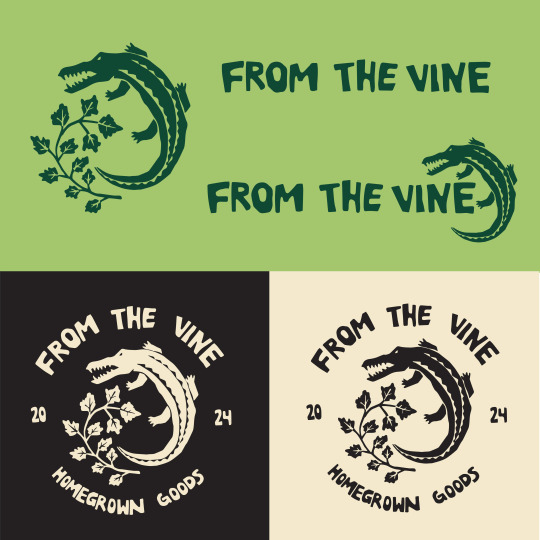
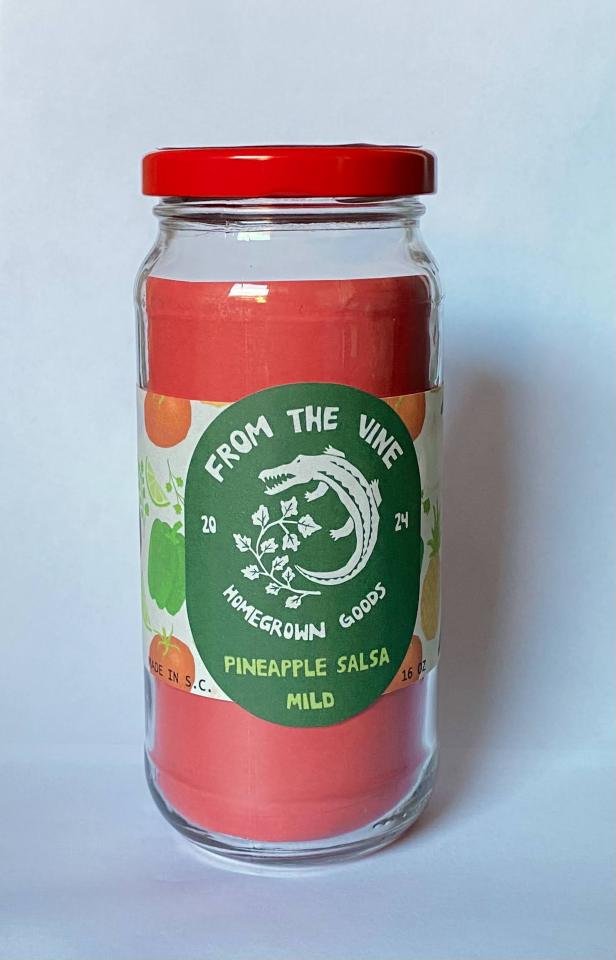
Inquiry 2
For this inquiry, I decided to choose packaging design and organic on the design matrix. My step dad wants to create and sell his own homegrown local products, especially salsa, so I decided to take that on for this next project. I started with trying to figure out the logo, and I knew that I wanted to create something that wasn't only central to the ingredients of salsa, or food in general, so that the brand could later incorporate other products and also so that the logo would stand out from other food products on the shelves. My step dad is a huge Florida Gators fan, which led me to the idea of using an alligator as a sort of mascot for the brand. At his suggestion, I decided to change my original design of a nondescript vine into a stalk of cilantro, since that is a primary ingredient in a lot of the products that he makes.
After creating the logo, I made some other logomarks for different applications. I then wanted to make a pattern with the salsa ingredients which could be used on the packaging. I really enjoyed drawing my pattern, and it is a different style than what I have drawn in Procreate before. I think my logos and packaging were way more successful than I thought they would be since it was my first time doing packaging. I really think the homemade feel comes across in the illustration and hand drawn type, but there are definitely some contrast issues that I need to correct.
Going forward, I would really like to create other merch objects as well as packaging for other food products and business cards.
Media 2
It is really cool to see a successful illustrator who has worked with so many big companies like Reebok and the Times, as well as publishing her own books. I'm also someone who wants to be an illustrator/designer and have multiple avenues of art making and money making.
I also definitely relate to your parents being nervous about choosing art work as a career. I remember when I was considering choosing Studio Art as a major for college, my mother tried to encourage me to pursue business if I wanted to create my own artistic business instead. While there's definitely value in this path as well, I felt that it was most worth my time and money to try to learn more about my own artistic practice. Her talking about comparing your own artwork to your peers definitely resonated with me, and I think it is something that many young artists struggle from, that is, learning to value and stand behind your own artwork.
I love the sentiment of "creating a story with a single stroke" and creating your own visual language through your artwork that other people can understand. I looked up Ping Zhu's artwork, and I really love her painterly and colorful style. I also really liked the way her portfolio is structured, and I will definitely take inspiration for my own portfolio. It's great to hear about the ways in which other illustrators have paved their own way in becoming a successful artist.
0 notes